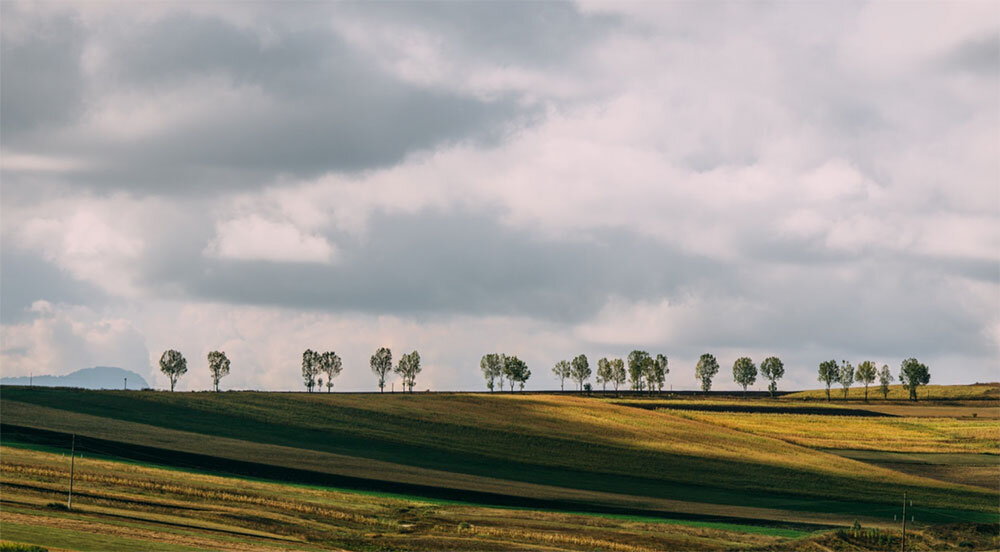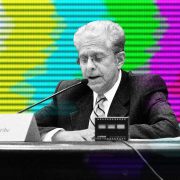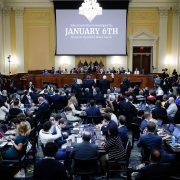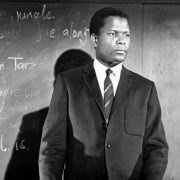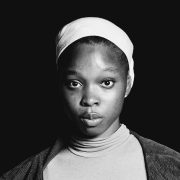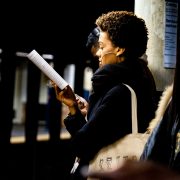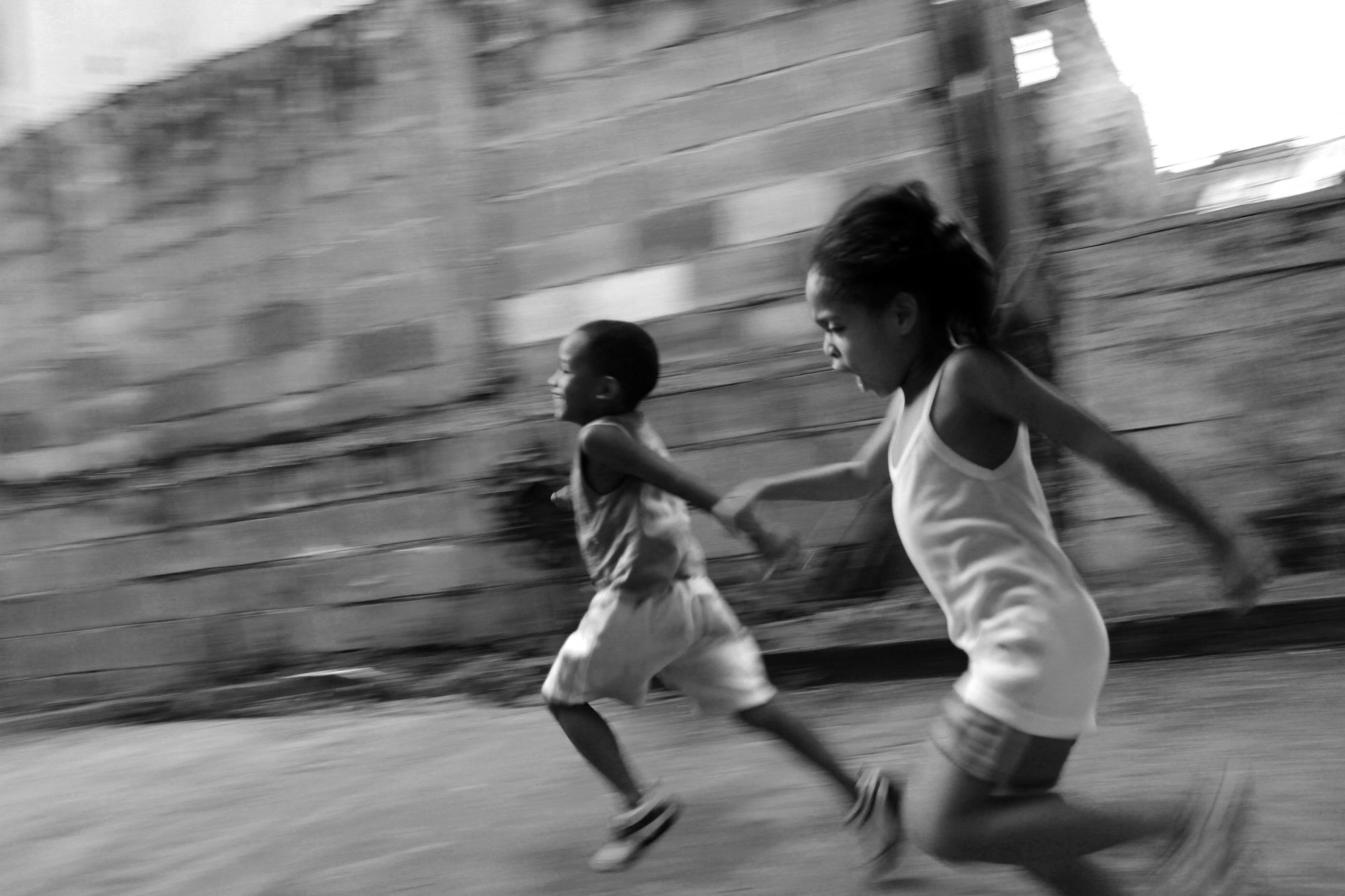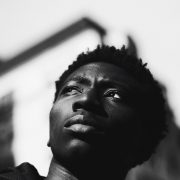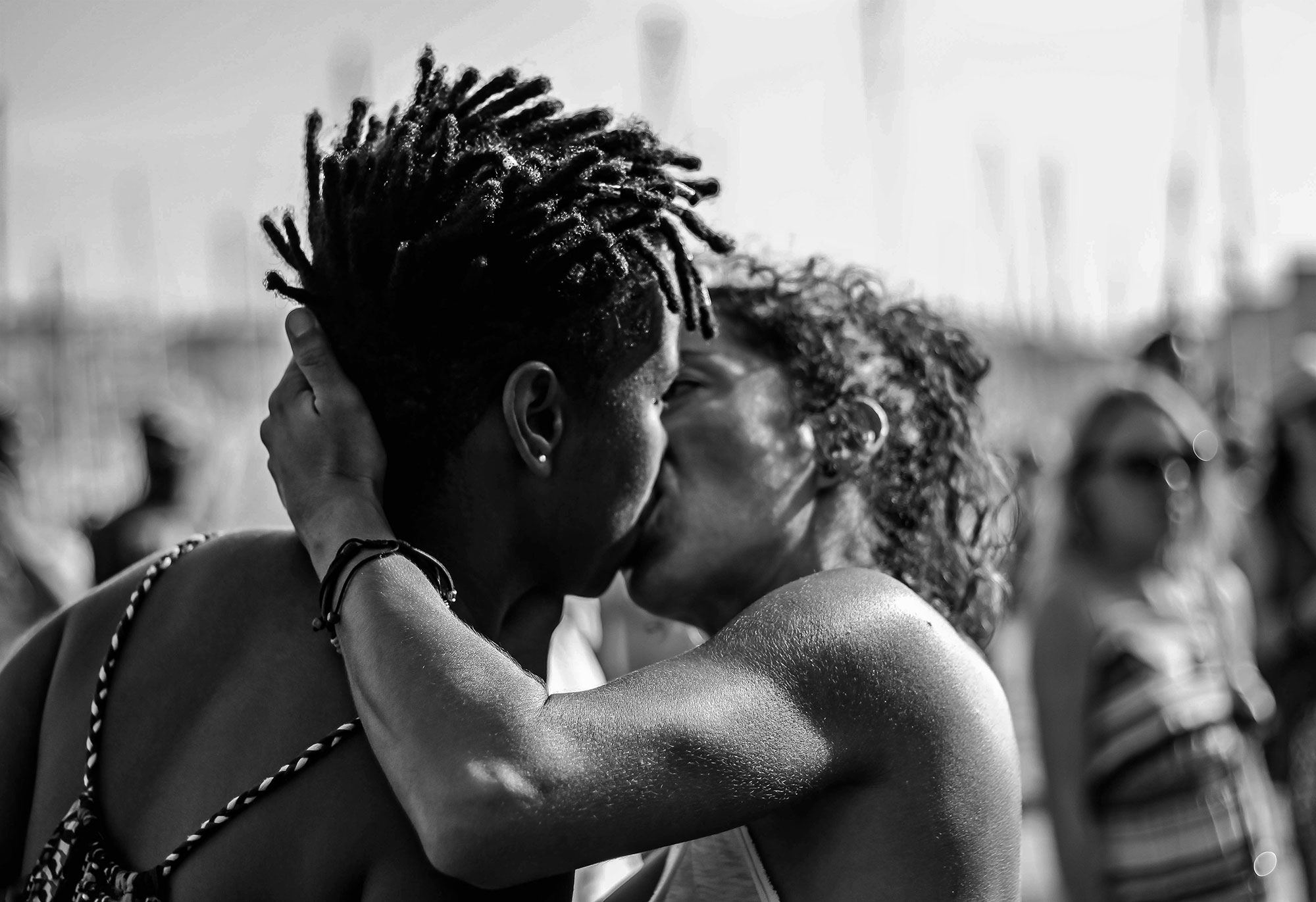Between 1990 and 1992, up to 300,000 Romanians emigrated in a wave following the political regime change in 1989. —The World Bank
It’s the first cool night in October. The sky’s a sheet of indigo peppered with stars. The smell of lavender is still floating in the air.
“Tell me a story from when you were a kid. One you haven’t told me before.”
I’m in Penny’s bed, pulling her comforter closer to my nose. Shadows dance on her ceiling. Dov strolls in, and she gives him a smile my dad and I never shared. “Penny, I’ll come to check on you later, okay?”
“Okay, lemme try to remember one,” I shuffle.
I’m wandering the corners of my mind, dusting off sounds and images.
“Tell me a long, looong one. Or three short ones,” Penny stretches.
“We’ve got time for one story, my love. What do you wanna know about?” I stroke Penny’s arm.
Sharing childhood stories is our bedtime ritual now. It started with singing her lullabies (off-key) in our reclining chair in Brooklyn. Nani, nani, puiu mami was one, in our half-Romanian household. She’d moan on my chest and float into dreamland.
And now, here it is — “tell me your story.”
It should be a magical moment for me. For many refugees, myself included, gathering threads from the past is a sacred practice. A practice in service of feeling whole, no matter where we’ve put down new roots. We’ve been piecing together our family history for more than thirty years now.
Thirty-one, to be precise. On November 9, 1989, The Berlin Wall fell, and with it, the Iron Curtain. By December, Romania erupted into a revolution, and our street was no exception. Blood spilled as throngs of demonstrators pushed back on Ceaușescu’s regime. Romania’s state security police put my grandfather on a kill list. Other dissidents had already been arrested and interrogated. I was twelve, and that winter would come to define my generation, my life.
Bucharest was a war zone. She flexed her wings, the fight, she plunged through our home, my family, everyone we knew. She made herself felt in every shot we dodged and in every surge of adrenaline that followed. The gunshots burst like popcorn. In the thick of it, a bullet bolted above my head and into the wall behind me. The loudest noise…I’d ever heard.
“Stay calm, little kitten,” my grandfather hugged me on the floor.
“We’re not going to make it,” my mom shook her head.
But we did.
“Were you scared?” Penny asks.
“I don’t think I realized the danger…it all felt like a movie or something. Only when I looked at the grownups did I see it was serious,” I say.
In the morning, we split up and went into hiding. I stayed with my friend Andrei and his parents, Colette and Florin. Their jokes and casual bickering were comforting. Every day we painted and watched the news. “Down with Communism!” Andrei rallied on the hour. The world was changing at a head-spinning rate. Scenes with sliced flags faded into Ceaușescu’s trial, cutting to his execution and a new government. My grandfather became a minister of state, a surreal sign that change was hitting home. He slept at his new office.
“Is there a pillow by his desk?” I lulled myself to sleep in Andrei’s bed, four kilometers away. Snoring filled the room, with his parents piping in different tunes…so dozing off became a game of slipping into the silent notes.
By January 2, Andrei and I decided it was time for some counterprogramming in the house. New year, new leaf. Next to a colossal box of candy in the living room, they had a VCR. Luxury tech in the Eastern bloc. We fired up E.T. and sank into the couch.
Then, it happened.
The phone rang midway through, or at least I think it was. I heard Colette whisper, deflated, behind me. “How did he die?”
I’d only heard the phrase once before. It had meant rupture.
Grief replaced numbness. She didn’t have to say his name. I knew it was my grandfather, the second our eyes met. Colette burst into tears and held me close with all her power. A tonic at the edge of a murky abyss.
Soon, a whirlwind came. My mom’s tears, her swollen face. Grandma’s silence underpinned by rage. The icy air around his grave. Cold enough to split stones. The men’s căciulas, keeping their heads warm. My aunts, kissing my cheeks and smelling of bubble gum. Generations gathering by the fire in Florin’s atelier. Salami, wine, reflection. And talk of leaving. Leaving for America.
Romania’s frontiers had been hermetically sealed during Communism, but a new day had come.
In March, we packed whatever fit in four crates and gave away the rest. My Barbies went to Diana across the street. So did the doll shoes I’d taken from another friend a few doors down. I wonder where Diana’s sitting now, what she thinks about when she digs into her pockets. I wonder about many things from that time in my life.
In April, we left. I wish I could’ve spent more time saying goodbye. Taken one more walk around our bedrooms. Sat at my grandfather’s heavy wooden desk one more time.
But…the doorbell rang, and we filed out. My mom, Marian, my grandma, and I.
“Who’s Marian?” Penny squints.
“Nonna’s husband,” I say.
My mom likes the kids to call her nonna.
It was night. Neighbors trickled onto the street to see us off. Mom’s friend Rodica, who’d looked after me through the years, squeezed me hard to her chest and bawled. Unsure of what to do, I cried too.
When our train pulled out of Bucharest, I tried to smooth the creases of what was happening. I touched the address book in my bag. I thought if I kept it safe, my friendships would live on. As my mom pushed our last suitcase under the seat, I murmured to Andrei, “Can we play outside?”
I imagined we could, and in my mind…we did.

My mom was thirty-nine, four years younger than I am now. She didn’t show a lot of emotion, but she must’ve felt scared, and the journey ahead must’ve seemed daunting. There were four of us to carry over the finish line into a new life, and we’d only begun.
I don’t remember the train being packed, though it must’ve been, and I don’t remember it making every imaginable stop, but it did. What comes back are flashes of people breaking bread and drinking țuică to pass the time. We were all riding the same wave due West, past the Balkan borders, which had been sealed for more than four decades.
In the morning, the train stopped in a field about 50 kilometers shy of Serbia. It was quiet and gray. The kind of gray without shadows. A conductor came to check tickets and passports. My grandma was smoking by the window in her white polyester suit. When he reached our compartment, she got up with a groan and met him at the door. He lifted the papers out of her hands without saying a word and glanced over them absentmindedly.
“Where are you going?” He shuffled the pages.
“We’re on our way to the United States, but first Rome,” my grandma said, and he shot her a charged look. I pictured a lightning bolt discharging in his mind.
“Stay here,” he said. His words were simple enough, but his tone was heated ember. He marched away with everything.
My mom’s lips parted, shocked. “Where are you going?” she called out to him, fear lodged in her throat. She usually radiated cool detachment, but this wasn’t it. I could see her tension rise. Panicked, she leaped past my grandma, who was still in the doorway, and chased him down the corridor. “He’s taken our tickets and passports!” she roared, urging people to please stop him.
I looked back and forth between my grandma and Marian, puzzled by what might come next. My thoughts played in a loop in my head. What now? What’s to come of us?
My family churned, vibrating with anger. We said little.
A few minutes later, the conductor came back. “You don’t have the necessary documents to cross the border,” he said. A blow packed in bureaucratic jargon.
“You’re lying,” my mom said, knowing very well she couldn’t do anything about it. No matter. He just kept pretending it was our fault.
“Wait. What did he do with your tickets and passports?” Penny asks.
“Well, Pen…he kept them. Emigrating was tricky business, even for families like ours,” I say.
“You need to get off the train,” he ordered. The conductor was efficient and utterly inaccessible, gesturing our pleas away. We couldn’t believe it. We could, but we couldn’t. We scrambled to pack our things, my mom reproaching him the whole time, sometimes under her breath. “Ioana, get your bag, please,” she motioned to me.
I sucked in my lips to keep steady as Marian helped me down the steps. It was spring, and yet the wind came bearing frigid air. The cold pierced into my bones, tears gushed into the corners of my lips. People watched from their windows as we drew our suitcases into the field. I let myself feel ashamed while trying not to at the same time. I pictured shame swallow me whole. I tried to erase that picture and replace it with another Ioana, calm on the train. I ached down to my marrow to be in her shoes. Birds fluttered by.
My mom’s distress flew out of her mouth in a barrage of heavy breaths, leaving a trail as she walked. “There!” She pointed to an open shed down the hill.
It was a deserted station with benches, and we rushed in. “What now?” we said to each other, shaking our heads over ruffled coats, still absorbing the shock. My grandma put on another pair of socks. They were thin but would do.
Our world seemed to be closing in, but we glanced over one possible link to the outside world. A dilapidated payphone. We lifted the receiver, praying to gods we didn’t believe in for a tone.
Signal.
We looked at each other and sighed with relief, deep from our bellies. Mom unfolded a letter with a number to call in an emergency.
“Who gave her the letter?” Penny asks.
“A friend who worked in the new Romanian government. Just in case we ran into trouble. We were very lucky,” I say.
So, my mom spoke with her friend and asked for help. Then we waited, not knowing if we’d spend the night right there, with the birds. I resigned myself to the fact that we were going to live second to second.
Midday, two cars appeared on the dirt road, pushing overgrown weeds out of the way as they drove to us. I lifted my head from my mom’s lap and saw two men step out.
“Good day,” Marian walked up to them.
“Good day,” they said. One continued, they were Romanian border agents from the crossing into Serbia, and our friend had reached out to them. They could connect us with another ride into Belgrade.

Their cars were warm and oh so comfortable. One of them smiled and handed me a granola bar. My mom smiled back, swallowing tears. She assured me it was okay to eat it. I took a bite and leaned over to get a better view of the car behind us, with grandma in it. Somehow, the familiarity of her preoccupied expression, always chain-smoking, put me at ease.
We pulled away, and I kept asking mom where exactly that border was. I pondered, will the air be different? Would my feet sense new soil? When we reached Belgrade later, the bananas in store windows really gave me pause. The only thing I’d ever known was Romania.
Marian and I waited at the train station while my mom and grandma drove on to the embassy. Inside the terminal, instead of a blast of frost, there was muggy heat. We shed our coats and sat on our luggage to share a sandwich. We watched people come and go.
At times, life comes full circle. My mom bought new tickets with the last money we had and got our passports back by some miracle I’ll never understand. Only the cosmos knows. And then, while we waited our turn to finally board, someone recognized us.
“I didn’t think you’d make it,” a man in his thirties said, “the conductor sold us your tickets.” A clash of fates must have brought us together. This man, his wife, the conductor, us, everybody. We were all sailing on the same sea, weathering the same storm from different positions. I heard a ringing in my ears and squeezed my mom’s hand.
She unleashed on the couple in the middle of the crowd. She screamed, she berated them, she asked how they could leave a child in the cold. Her voice was full. Strong. She checked their gaze, her face on fire. Fellow Romanians intervened, but no use. For my mom, this was life or death. By then, we’d depleted our resources…we had no food, no water, no shelter. We didn’t speak Serbo-Croatian. There was no going back to Bucharest…to anarchy’s whims, where her dad had just left a gaping void in her chest. Something desperate in us needed to hurl ourselves forward as far as possible.
When pain is acute, all sense of conformity crumbles, and the inner animal arises. For my mom, this was it. We had to move, fail, triumph, breathe forward.
“I can’t believe the conductor sold your tickets,” Penny frowns.
“It was rough. But he also needed to survive, and maybe this was the only way he could,” I say.

In May, we wobbled off a small plane at Dulles Airport. It was late at night, and the terminal was empty yet strikingly bright. We’d catapulted into another dimension. We were so wiped we couldn’t even talk to each other. But I kept Andrei updated in my mind. “When I get home, we can draw.”
Tap, tap, my aunt Svetlana’s footsteps broke the silence. She was a sight for sore eyes. A generous presence in a small body. She and her husband, Chris, drove us away in their Toyotas. I sank into the seat, relieved to leave the airport and evade any more troubles. The street lights flew by, and I marveled at how roads could possibly be this smooth.
I wanted to believe that each loss of what I had known was a stepping stone towards what I would become. And yet, the truth I knew even then, probably, is that each loss would become a loose thread to piece together later. My home, the sound of my name rolling off American tongues, my first language.
Pulling into their driveway was the end of a marathon. Troubles and triumphs marked our month-long journey. One moon cycle, two hemispheres. Different worlds. I sat at their kitchen table for the first time of what would be thousands and half-closed my eyes. My mom stood nearby…not quite ready to leave my side.
Chris set a bunch of golden bananas in front of me, “Ioana, I hear they’re your favorite.” Caught off-guard, I snorted lightly and pulled them toward me, then looked at my mom, who was still standing around. We’d crossed the finish line into the land of plenty, as some may say.
“I miss Uncle Chris and Auntie Moose,” Penny stares at the shadows on her ceiling.
I get lost in thought next to her.

We haven’t seen my family in a year. Everything shut down because of COVID, and we didn’t have a chance to visit beforehand.
So we spent summer and fall tending to our farm by the house. Penny is learning how to plant seeds and pick suckers off tomato plants. “Sucker,” she points. “Get it!” Dov hollers. My husband’s tie to the land is truly exceptional.
She hunts slugs with her dad at night, their headlamps shaping light circles into the soil. They skewer slugs with sticks like shish kebabs, and then they dump them into a plastic jug for later disposal. It’s disgusting. Their bond floods me with a love that knows no bounds.
Seeing Penny in the garden, I imagine the membrane between my childhood and hers evaporating. Our timelines are beaming off window panes here, fluttering off pine needles outside her window over there.

“Sleep time, Pen. I love you so much, it’s crazy.”
“Love you too,” she nuzzles into her comforter.
I sit up in Penny’s bed and poke around for my slippers. It’s chilly. Our reclining chair is still in her room, though we’re no longer in Brooklyn. We’re in South Orange. I can hear Dov moving around in the hallway. He must’ve just finished putting Talia to bed, our little one. We pass each other in the hall, and I beam, knowing he’s going to Penny, just as he promised he would.
I realize that Penny’s curiosity, our nightly rite contemplating what was, is more than a magical moment. When we’re speaking in the most intimate voice about our lives, we’re speaking with the universal voice. It’s no longer words. It’s bouquets of love engulfing soul engulfing multiverses.
More than ever, I see how our family is part of a bigger picture…how we’re threads in the fabric of something eternal. I see how the ancients go on through us who live today. So too, we build not just for now but for them who are to come after us. We’re part of a tapestry that spans worlds and epochs, and that will stretch further and further into the horizon of history.
Ioana Friedman is an art director and Editor in Chief at The Daring. She’s led digital creative at Estée Lauder Companies and e.l.f. Beauty and has served in a creative capacity at Magnum Photos and powerHouse Books.


